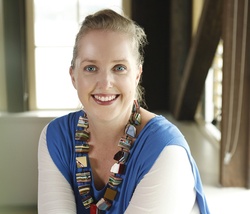Samantha Yorke is the director of regulatory affairs at the Australian Interactive Advertising Bureau. She is a senior digital media and technology lawyer and policy advisor with more than 1 years’ experience working within the consumer technology sector in Australia and Europe. Sam was previously legal director for Yahoo! for Asia-Pacific and participated in external forums such as the Department of Broadband, Communications and the Digital Economy’s Consultative Working Group on Cybersafety and the Safer Internet Group. She consulted during reforms of the Federal Privacy Act, contributed to the Prime Minister & Cabinet’s Cyber whitepaper, and was instrumental in the drafting of the self-regulatory Best Practice Guideline for Online Behavioural Advertising.
Samantha is a deputy member of the NSW Information and Privacy Commissioners Office Advisory Committee and sits on the management committee of All Together Now.
As any CMO worth their salt would know, the 97 per cent of Australians who are online using social media are not a passive audience. Facebook observes 3.2 billion likes and comments globally every day, which equates to 37,000 every second. 100 million people take some form of social action on YouTube globally every week, and more than 50 per cent of videos on YouTube have been rated or include comments from the community.
Not surprisingly, businesses have also embraced social media. Thirty per cent of small businesses, 47 per cent of medium business, and 79 per cent of large businesses have a social media presence and these numbers continue to grow. Of course with this activity comes risk in many forms, one of which may surprise some.
The risk is the very nature of commentary itself. Businesses should give careful consideration to managing user comments on their site both from a reputational and legal perspective. There are several ways in which this can be done according to a business’ size, resources and appetite for risk.
Of course, responsibility is really shared across consumers, who should consider the appropriateness of their comments before posting them; social media platforms, who are required by law to remove illegal content once they have been made aware of it; the community, who often serves as the eyes and ears and should report illegal content to the platforms directly; and businesses, who should be monitoring the ebb and flow of their interactions with the community.
Central to this is the moderation of user comments, something which IAB has articulated in its soon to be released Social Media Guidelines. Each different type of moderation has various pros and cons, for example:
- Pre-moderation, which means reviewing all user comments before they are published. This is reassuring but also carries increased legal responsibility as you are essentially curating all user commentary made available to your audience. This places you firmly on the hook for any user comments which are illegal and approved for publishing by your moderators.
- Community moderation, which relies on the audience reporting illegal or inappropriate
content to the website operator for investigation and where appropriate, removal. This gives your community a sense of ownership over the tone of conversations but it relies heavily on users being proactive and that may carry risks.
- Technical moderation, which includes word filters and automatic scanning for potentially inappropriate content, so it can cover vast volumes of commentary very quickly. However the margin for error is high due to the same rules being applied across all comments and it also typically requires an element of human review.
- Human moderation is another option, though an expensive one. It does however allow for a much more nuanced approach and well trained staff will make sound judgment calls.
Another area of risks for business is the temptation to task a relatively junior member of staff with managing social media. While they may be most familiar with the platforms, they often lack the executive maturity to make nuanced judgements and see the broader business impact of certain decisions. CMOs should consider outsourcing their social media management to one of the growing businesses who have qualified, experienced staff who can take these issues off your hands.
It’s fair to say that the world of social media is evolving and a relatively unchartered territory, yet it offers considerable opportunity for business, and the risks to date are largely reputational rather than legal. This affords CMOs more flexibility in developing an internal social strategy appropriate to your businesses, and gives them permission of sorts to resist the temptation to react conservatively.
So jump right in – with your eyes wide open – and enjoy the many and varied benefits of social media engagement.
Tags: IAB, digital advertising, social media strategy








